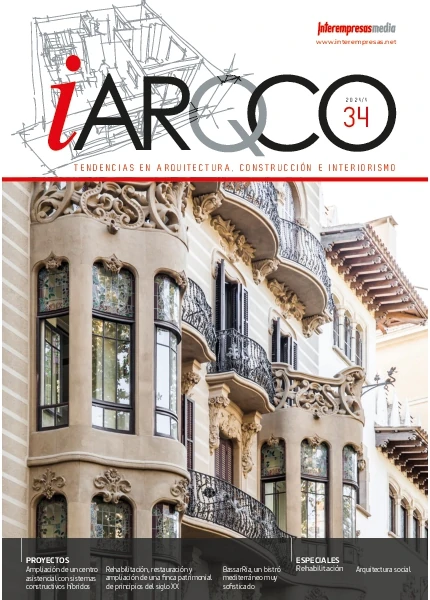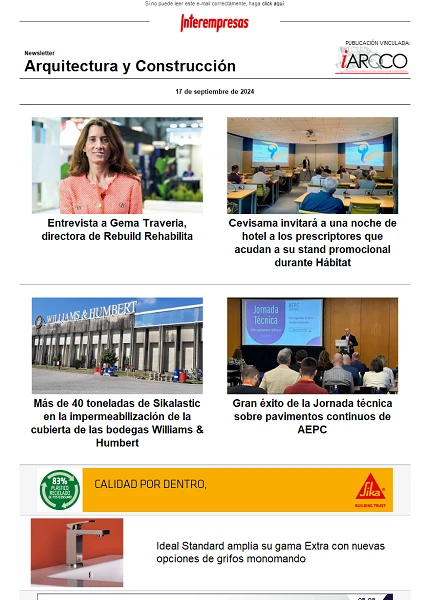The answers to the frequently asked questions about labour and PRL in users of MTSP
July 23, 2010
How should the recklessness of the employees be understood in work-related accidents?
Reckless imprudence of the worker requires conduct that, with clear contempt for life itself, to accept voluntary and deliberately run an unnecessary risk that puts in serious danger, lacking the most elementary rules of prudence. I.e. this kind of recklessness involves a patent and clear disregard of the risk and required most elementary prudence.
In an accident at work, it would break the causal link if out of a gravity extraordinary and not justified and would prevent that the accident was described as labour.
Now, if previously to the incident/accident didn't exist in the enterprise a specific rule and specify with respect to the method of work in question, whose improvement is adopted by the company when the accident happened, the aforementioned causation is not broken for having violated the employer with the rules on the prevention of occupational risks in the absence the measures necessary to protect the safety of employees and relevant.
What areas or areas of a workplace are excluded from the application of Royal Decree 486/1997, of 14 April, on security conditions in the workplace?
-The means of transport used outside the enterprise or workplace, as well as workplaces in means of transport.
-Temporary or mobile construction sites.
-The extractive industries.
-Fishing vessels.
-The fields of farming, forests and other land forming part of a company or establishment of agricultural work or forestry but who are located outside the built-up area of the same.
By workplaces are understood to built-up areas of the workplace, or not, in which workers must stand or to which access by reason of his work, as a consequence, workplace extends to those spaces which the worker can access as a result of the labor provision.
Is it may report to a company or organization anonymously in prevention of occupational hazards?
In accordance with article 13(2) of law 42/1997, of 14 November, ordering of the Inspectorate of labour and Social Security, not are treated anonymous complaints, and the identification of the complainant, necessary for referral of the report on the work of checking and administrative measures carried out in relation to the facts reported and frequently used by the acting official to clarify or complete certain extremes of the complaint; all this is without prejudice to the possibility of the own complainant's appointment with the staff member.
Labour and Social Security inspectors have duty to consider confidential the source of the allegations, being obliged not to disclose the identity of the complainants to enterprises subject to inspection.
However, not to be forgotten, taking into account the delicate matter of prevention of labour risks, the importance of the performance of Office of the labour inspectorate to have knowledge of a possible defect that violates the security of the workers of a company or organization.
Remember, the judgment of the Ardystil (Alicante, with the death of six workers) case in which the Supreme Court sentenced to a labour inspector in charge of lack of negligence in its action inspector. Previously, the audience of Alicante had sentenced you with the penalty of imprisonment from 6 months and a day for crime of reckless imprudence.
What obligations do the self-employed in relation to the rules on prevention of occupational hazards?
Law 20/2007 of 11 July, of the Statute of self-employment (Official Gazette No. 166 of 12 July), is the standard that currently regulates the forecasts of the self in relation to public administrations and businesses.
Public administrations have to assume an active role in the prevention of risks at work of self-employed workers, carrying out activities for the promotion of prevention, technical advice, monitoring and enforcement by the self-employed of the regulations.
Regarding the relationship with the companies impose the following obligations:
-Information/education and cooperation and coordination when in a job centre to develop autonomous worker activities and workers of one or more other companies, as well as when running his business in the premises or places of work of the companies that provide services.
-For monitoring, on the implementation of the legislation in PRL by self-employed workers which affect companies that hire such workers to carry out works or relevant to the activity of those services, and to develop in their own workplace.
-Of information, where the self-employed should operate with machinery, equipment, products, materials or tools provided by the company for which they run their professional activity, but not carried out this activity in the workplace of such a venture.
It is not required to apply for medical fitness to the self-employed worker individually considered due to the lack of employer who take responsibility of this obligation. Yes shall guarantee the right to the protection of the health of workers possible self-employment the self-employed worker employed.
Can a subcontractor company, outsource part of their activity with other subcontracts?
The first and second subcontractors will outsource the execution of the works, respectively, having contracted, except in the cases referred to in (f)) which are listed below.
The third subcontractor may not subcontract the works would have hired another subcontractor or self-employed worker.
(Letter (f)): also may not subcontract subcontractors, whose productive organization put into use in the work mainly consists of the provision of labour, being understood as that for the execution of the contracted activity does not use more own work teams to hand toolsincluding the portable, motorized, although they have the support of other teams other than those specified provided that they belong to other companies, contractors, or subcontractors of the work.
However the previous paragraph, when in incidental cases duly justified by requirements of specialisation of the work, technical complications of production or of force majeure circumstances that can traverse the actors involved in the workwas necessary, in view of the site management, the recruitment of some part of the work with third parties, exceptionally be may extend the contract established in the preceding paragraph in an additional level, provided that be recorded by the site management prior approval and the cause or motivating causes in the book of outsourcing to the referred to in article 7 of the law of contract.
Do accident, having no training, responsibility lies with the employer?
The law on prevention of labour risks (LPRL) establishes in article 42 that non-compliance by employers of their obligations in the field of prevention of occupational hazards will give place to administrative responsibilities, as well as, where appropriate, criminal responsibility and the civilians for damages or losses that may arise from the breach.
Also, the article says that administrative responsibilities arising from the sanctioning procedure shall be consistent with the compensation for the damage caused and surcharge of economic benefits of the system of Social security that can be set by the competent body in accordance with provisions in the regulatory rules of the systemthat it is none other than the General Social Security Act (article 123).
Thus, we find 4 types of responsibilities:
-Administrative (set)
-Labour (charge of the Social Security benefits between 30% - 50%, which is not subject to any prior assurance)
-Civil (compensation for damages)
-Criminal (Commission of a crime against the rights of workers, with prison sentences of up to 3 years and, in the event of death of the worker, with a criminal offence of manslaughter by gross negligence or injury if there is no death).
As a result, the formation of the worker to be an inexcusable duty of the employer, not carried out theoretical and practical training for the company and in the case of an accident, are require to it the four types of responsibilities described abovebecause they are all exigiblemente compatible from a legal point of view.
How is acting the Prosecutor's Office in PRL?
After the specialization and appointment of public prosecutors against workplace accidents, the criminal treatment of infringements in PRL and labour offences has hardened significantly, even if no death or injury has occurred, but are considered at risk the life of the worker.
Accordingly, an agreement has been signed between the inspection of working and prosecutors against accidents in cases where serious breaches of the rules of occupational health are detected.
You can or must apply for medical fitness to a self-employed worker?
Article 22 of law 31/1995 of 8 November, prevention of occupational risks concerning workers employed, by establishing the obligation of the employer to ensure a regular monitoring of their State of health based on the risks inherent in the work. We therefore believe that this obligation is not payable to the self-employed worker individually considered due to the lack of employer who take responsibility of this obligation. Yes shall guarantee the right to the protection of the health of workers possible self-employment the self-employed worker employed.
Are they subcontractors and self-employed workers obliged to appoint and have preventive resources?
The fourteenth additional provision of Act 31/1995 (law on prevention of labour risks) regulates the presence of preventive resources in construction. 1.A of the same paragraph indicates that the mandatory presence of preventive resources apply to each contractor. In this sense, must be taken into account for these purposes, the definition of contractor established in article 2.1. h) of the Royal Decree 1627 / 1997, of October 24 (regulation of safety and health in the construction works), i.e.one person or legal entity that assumes contractually to the promoter, with human and material, own or outside, means the commitment to implement all or part of works subject to the project and the contract.
Therefore, the presence of preventive resources will have as object the monitoring of the measures included in the safety and Health Plan and verify the effectiveness of them, both in regard to the staff of the contractoras in respect of subcontractors and self-employed workers hired by one. In this way, it is considered that the presence of preventive resources is referred to the contractor, and not to the subcontractor or the self-employed.
Implications for the employer giving occupation to a non-Community foreign workers without work permits.
In accordance with the provisions of articles 54 and 55 of the law 4/2000 of 11 January, regulating the rights and freedoms of foreigners in Spain and their social integration, the recruitment of foreign workers without having obtained prior relevant work permits constitutes infringement as very seriousincurring the entrepreneur an infringement by each foreign workers employed in this irregular situation, and can climb every fine from 6.001 up to 60,000 euros. This amount will increase in the amount resulting from calculate what they would have had to enter in Social security contributions and other concepts of collection together, since the beginning of the provision of services of the foreign worker until the last day that this provision is found, pursuant to article 48 of law 62/2003 of 30 December, fiscal measures, administrative and social order.
Without prejudice to this, the articles 55.6 organic law 4/2000 and 141.5 of Royal Decree 2393 / 2004 reflected the closure of the establishment or premises as accessory punishment from six months to five years.
For its part, the articles 57.1 of the organic law 4/2000 and 138 of the Royal Decree 2393 / 2004 provides for the expulsion of the offending foreign businessman Spanish as an alternative to the fine penalty.
The sanctioning file will start by the Inspectorate of labour and Social Security Act, under the sanction procedure for breaches of the social order, with the imposition of sanctions to the Subdelegado of the Government or the Government delegate in the autonomous regions uniprovinciales.
The lack of the relevant authorisation, without prejudice to the responsibilities of business to take place, including those in the field of Social Security, does not invalidate the contract of employment with respect to the rights of foreign workers, nor will hinder the obtaining of benefits that could correspond to them.




































































































